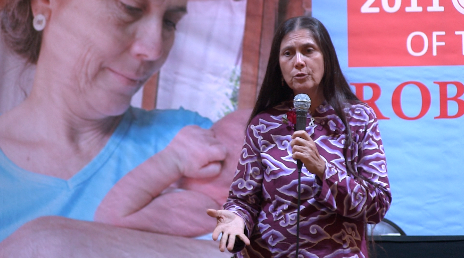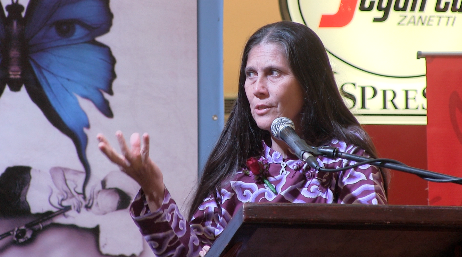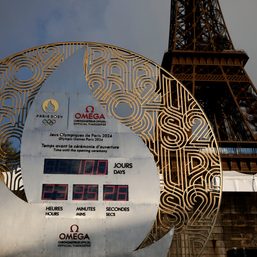SUMMARY
This is AI generated summarization, which may have errors. For context, always refer to the full article.

MANILA, Philippines – Cellphones can be a vital tool for midwives in poor countries.
In northern Indonesia, the Bumi Sehat health clinic connected with expectant mothers in rural areas by putting cell phones in the hands of 13 traditional birth attendants around Aceh.
“You don’t really know how many lives have been saved… but ever since the handphone program went into effect nobody has lost a mother in our area- which is amazing,” said Filipino-American midwife Robin Lim.
Lim brought international attention to the need for midwives in Indonesia when she was voted the CNN Hero of the Year in 2011.
With the United Nations Population Fund saying 3 in 5 women in South Asia give birth without a skilled birth attendant, the demand for midwives was clear. But so was the need to extend their reach with technology. The mobile penetration rate in Indonesia is 54%, according to 2011 research by The Nielsen Company.
Lim discovered the need to give local healers cellphones when an 8.9 magnitude earthquake with an epicenter near Aceg shook northern Indonesia in 2004.
“We found that the people go to them first. So as soon as cell phone towers were up, our organization provided them with handphones and we paid for their plans. And we taught them how to use them because some of them were in their 80’s,” said Lim.
She added, “They are the trusted women, who are the first line of defense when a mother and baby are at risk.”
She said that at the time, the Yayasan Bumi Sehat or Healthy Mother Earth Foundation distributed 32 other cellphones. She explained that while other aid organizations eventually left the disaster zone, “we had no exit strategy.”
She said the cellphone program continues to this day.
A published author, Lim easily slips into storytelling. She describes a typical scenario where the phone comes in handy.
It’s 3 a.m. and a husband calls the local midwife. The way she tells it, the healer knows the mother will need extra medical attention since she has high blood pressure and is undernourished from relying on the cup of soup and rice she gets from the World Food Program. As one of the 13 traditional birth attendants with a cellphone, she dials the number for the Bumi Sehat health clinic.
“Say it’s mother Fetri in labor. She wants to give birth at the clinic. The clinic sends an ambulance and picks up her, her traditional birth attendant and her whole family and brings them. If she wants to give birth at home, our midwife goes… and the ambulance stands by. If we have to move her to the clinic it can be done. And we bring oxygen and a birth kit,” said Lim.
Robin Lim advocates having an attentive midwife see the pregnancy and birthing through entirely. She internalized that lesson when her sister and the baby she was carrying died.
She said, “My sister died in pregnancy. She was in the United States. She was under the care of an Obgyn and she had medical insurance. But the doctor didn’t take the time to address the problem. She had hypertension and it could have been solved. She needed medication.”
“I feel like if my sister had a midwife, she would have been alive today. I lost a sister but I gained a passion,” said the midwife.
Lim added, “I try to do something everyday for all the mothers of the world in her honor.”
Revisiting Philippine roots
Lim is in the Philippines from April 29 to May 9 to celebrate International Day of the Midwife with Filipino midwives in General Santos City, Mindanao. She credits Filipinos for helping vote her to success in the CNN hero awards.

At a launch for her book “Butterfly People” in Manila, Lim said she never expected to win. She told the CNN producers she was shocked she won because, “The patients that we help have no computers. They are desperately poor. They’ll never own a computer in their lives.” She said, “They asked who do you know in the Philippines? The Philippines voted off the scale for you.”
“Well, Filipinos are very loyal,” she told them.
Lim said if there was funding she would ideally start a health clinic in Baguio, where her maternal grandmother was a midwife.
She is currently hammering out plans to build a permanent health clinic in Indonesia using the US$250,000 that her organization won as prize money from CNN. To this she has added the $50,000 she won for herself. – Rappler.com
Click on the links below for more.
Add a comment
How does this make you feel?





There are no comments yet. Add your comment to start the conversation.